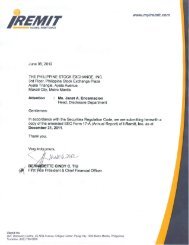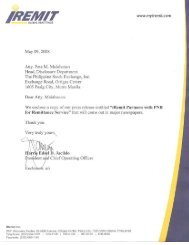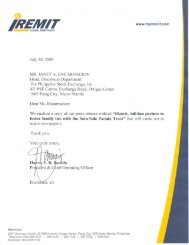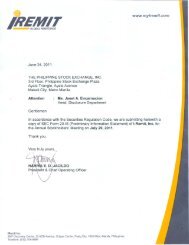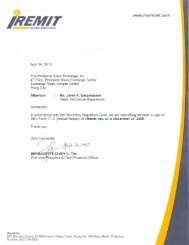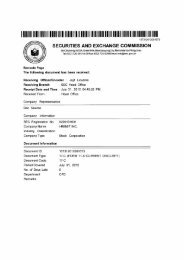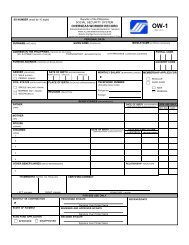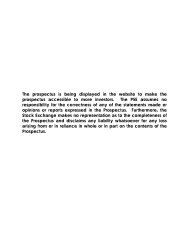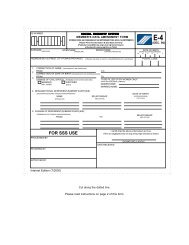SEC Form 20-IS - iRemit Global Remittance
SEC Form 20-IS - iRemit Global Remittance
SEC Form 20-IS - iRemit Global Remittance
You also want an ePaper? Increase the reach of your titles
YUMPU automatically turns print PDFs into web optimized ePapers that Google loves.
- 17 -<br />
Income Taxes<br />
Current tax<br />
Current tax assets and liabilities for the current and prior periods are measured at the amount<br />
expected to be recovered from or paid to the taxation authorities. The tax rates and tax laws used<br />
to compute the amount are those that are enacted or substantially enacted at the balance sheet date.<br />
Deferred tax<br />
Deferred tax is provided, using the balance sheet liability method, on all temporary differences at<br />
the balance sheet date between the tax bases of assets and liabilities and their carrying amounts for<br />
financial reporting purposes.<br />
Deferred tax liabilities are recognized for all taxable temporary differences, including asset<br />
revaluations. Deferred tax assets are recognized for all deductible temporary differences,<br />
carryforward of unused tax credits from excess minimum corporate income tax (MCIT) over the<br />
regular corporate income tax (RCIT), if any, and unused net operating loss carryover (NOLCO), if<br />
any, to the extent that it is probable that taxable income will be available against which the<br />
deductible temporary differences and carryforward of unused tax credits from excess MCIT over<br />
RCIT and unused NOLCO can be utilized.<br />
Deferred tax liabilities are not provided on non-taxable temporary differences associated with<br />
investments in associates where the timing of the reversal of the temporary differences can be<br />
controlled and it is probable that the temporary differences will not reverse in the foreseeable<br />
future.<br />
The carrying amount of deferred tax assets is reviewed at each balance sheet date and reduced to<br />
the extent that it is no longer probable that sufficient taxable income will be available to allow all<br />
or part of the deferred tax asset to be utilized. Unrecognized deferred tax assets are reassessed at<br />
each balance sheet date and are recognized to the extent that it has become probable that future<br />
taxable income will allow the deferred tax assets to be recovered.<br />
Deferred tax assets and deferred tax liabilities are measured at the tax rates that are applicable to<br />
the period when the asset is realized or the liability is settled, based on tax rates (and tax laws) that<br />
have been enacted or substantially enacted at the balance sheet date.<br />
Deferred tax assets and deferred tax liabilities are offset if a legally enforceable right exists to set<br />
off current tax assets against current tax liabilities and the deferred taxes relate to the same taxable<br />
entity and the same taxation authority.<br />
Current tax and deferred tax relating to items recognized directly in equity are also recognized in<br />
equity and not in the consolidated statement of income.<br />
Discontinued Operations<br />
A discontinued operation is a component of the Group’s business that represents a separate major<br />
line of business or geographical area of operations that had been disposed of or is held for sale, or<br />
is a subsidiary acquired exclusively with a view to resale. Classification as a discontinued<br />
operation occurs upon disposal or when the operation meets the criteria to be classified as held for<br />
sale, if earlier. When an operation is classified as a discontinued operation, the comparative<br />
consolidated statement of income are re-presented as if the operation had been discontinued from<br />
the start of the comparative period. In the consolidated statement of income of the reporting<br />
period, and of the comparable period of the previous year, income and expenses from<br />
*SGVMC116502*



